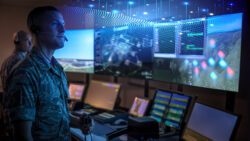Charles River Analytics Inc., developer of intelligent systems solutions, has announced a contract awarded by the National Institutes for Health (NIH) to build a software system that monitors cognitive changes associated with cancer and cancer treatment. The nine-month contract for Cognitive Assessment and Monitoring Platform For Integrative Research, or CAMPFIRE, is valued close to $225,000.
“Cancer survivors commonly report cognitive impairments following chemotherapy,” said Dr. Seth Elkin-Frankston, a scientist at Charles River and Principal Investigator on the CAMPFIRE effort. “With a growing number of cancer survivors comes an increased urgency to better understand the precise etiology and prevalence of cognitive changes associated with cancer and cancer treatment. We are developing CAMPFIRE as a privacy-compliant software system to support the administration of cognitive assessment measures and facilitate secured provider–patient interactions.”
CAMPFIRE integrates a suite of well-validated cognitive measures to assess and monitor subtle changes in cognitive performance and patient-perceived symptoms throughout the cancer treatment and survivorship phases. Providers and researchers will be able to remotely administer cognitive assessment measures to patients over time. Through better monitoring, the CAMPFIRE system will support prospective longitudinal studies to help enhance clinical outcomes.
Charles River is teaming with Dr. Andrea Bullock, Dr. Margaret O’ Conner, and Dr. Richard Gershon on the CAMPFIRE effort.
“We are glad for the opportunity to help contribute to future improvements to the lives of cancer patients, and to continue our relationship with the NIH,” added Elkin-Frankston.
In 2015, NIH awarded Charles River a grant for the Semi-Automated Processing of Interconnected Dyads Using Entity Resolution program, or SPIDER. In the SPIDER effort, Charles River is developing software for HIV researchers to improve methods for building participant risk networks.
CAMPFIRE is Charles River’s latest effort in healthcare support and training, which includes surgical training systems, a first-aid training framework, artificial intelligent enhancements for recovering amputees, therapeutic applications, decision aids, healthcare data analytics, sensors and sensing technology, and mobile training technology.
See other examples of our Healthcare Support and Training efforts.
This project has been funded in whole or in part with Federal funds from the National Cancer Institute, National Institutes of Health, Department of Health and Human Services, under Contract No. HHSN261201600060C.




